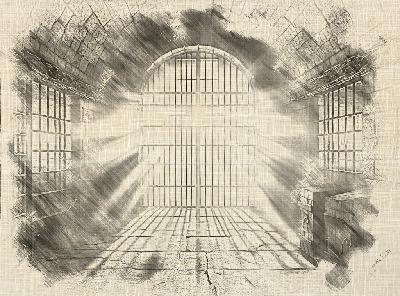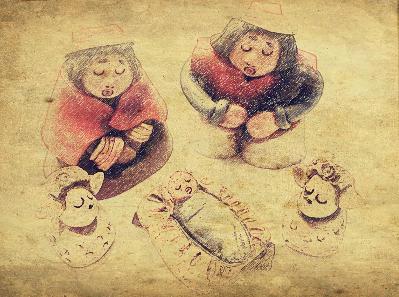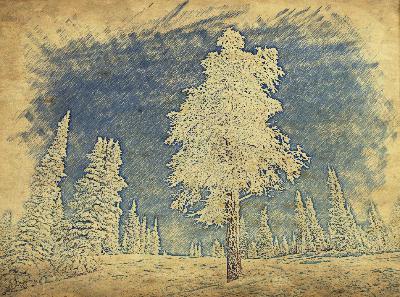Finding Hope in the Bleak Midwinter
Description
The Frost of Humanity’s Heart
In the quiet solitude of our inner chambers, where the whispers of eternity echo softly against the walls of our souls, we find ourselves drawn to the haunting beauty of Christina Rossetti’s “In the Bleak Midwinter.” Like a delicate snowflake alighting upon the windowsill of our consciousness, this hymn invites us to pause and contemplate the profound mystery of the Incarnation.
“In the bleak midwinter, frosty wind made moan,
earth stood hard as iron, water like a stone;”
These opening lines paint a stark picture of a world gripped by winter’s unforgiving embrace. Yet, dear seeker, let us look beyond the literal and peer into the spiritual landscape that Rossetti so masterfully evokes. Is not this bleak midwinter a reflection of the human heart before the warmth of Christ’s love penetrates its depths?
The Apostle Paul, in his letter to the Ephesians, reminds us of our condition before grace intervened: “And you were dead in the trespasses and sins in which you once walked” (Ephesians 2:1-2, ESV). Like the earth “hard as iron” and water “like a stone,” our hearts were once frozen, unyielding to the gentle touch of divine love.
But take heart, beloved, for even in this bleakness, hope stirs. For it is precisely into such a world – into such hearts – that Christ chose to enter. The prophet Isaiah foretold this miraculous advent: “The people who walked in darkness have seen a great light; those who dwelt in a land of deep darkness, on them has light shone” (Isaiah 9:2, ESV).
The Descent of Divinity
“Our God, heaven cannot hold him, nor earth sustain;
heaven and earth shall flee away when he comes to reign.”
In these lines, Rossetti captures the awe-inspiring paradox of the Incarnation. The infinite God, whom “heaven and the highest heaven cannot contain” (1 Kings 8:27 , ESV), willingly constrains Himself to the form of a helpless babe. The One before whom “earth will shake and the heavens tremble” (Joel 2:10 , ESV) enters our realm not with the thunderous acclaim of royalty, but with the quiet whimper of an infant.
Beloved, let us pause here and allow the weight of this truth to settle upon our hearts like fresh-fallen snow. The God who spoke the universe into existence, whose very breath kindled the stars, chose to draw His first earthly breath in the humble confines of a stable. What unfathomable love is this?
The Apostle John, in his gospel, articulates this mystery with profound simplicity: “And the Word became flesh and dwelt among us, and we have seen his glory, glory as of the only Son from the Father, full of grace and truth” (John 1:14 , ESV). The Greek word translated as “dwelt” – eskēnōsen – literally means “to pitch a tent.” Our Lord, the King of Kings, pitched His tent among us, choosing to make His dwelling in the midst of our brokenness and need.
The Sufficiency of Simplicity
“In the bleak midwinter a stable place sufficed
the Lord God Almighty, Jesus Christ.”
Here, in the economy of two short lines, Rossetti presents us with a truth so profound it threatens to overwhelm our finite understanding. The Lord God Almighty, He who “sits enthroned above the circle of the earth” (Isaiah 40:22 , ESV), finds a stable sufficient. What a rebuke to our endless striving for more, for better, for grander!
Dearest reader, how often do we fall into the trap of believing that we must somehow make ourselves worthy before approaching God? How frequently do we labor under the misapprehension that our offerings must be elaborate, our prayers eloquent, our service spectacular? Yet here, in the quiet simplicity of a stable, we find a God who is content with the meager offerings of humanity.
The Psalmist reminds us, “The sacrifices of God are a broken spirit; a broken and contrite heart, O God, you will not despise” (Psalm 51:17 , ESV). It is not the grandeur of our gestures that moves the heart of God, but the sincere offering of ourselves, just as we are.
The Celestial Chorus and the Intimate Adoration
“Angels and archangels may have gathered there,
cherubim and seraphim thronged the air;
but his mother only, in her maiden bliss,
worshiped the beloved with a kiss.”
In these lines, Rossetti presents us with a beautiful juxtaposition – the grand celestial chorus of angels and the intimate, tender worship of a mother. The heavenly host, those mighty beings who stand in the very presence of God, gather to herald the birth of the Savior. Yet, in the midst of this cosmic celebration, we find a moment of profound intimacy – a mother’s kiss.
Dear one, do you see the beautiful truth hidden within these verses? The God who receives the adoration of angelic beings delights equally in the simple, heartfelt worship of His children. The letter to the Hebrews tells us that Jesus is “not ashamed to call them brothers” (Hebrews 2:11 , ESV), speaking of those who are sanctified by His sacrifice.
Consider for a moment the implications of this truth. The same God who receives the ceaseless praise of seraphim and cherubim invites us into an intimate relationship with Him. As the Apostle John writes, “See what kind of love the Father has given to us, that we should be called children of God; and so we are” (1 John 3:1, ESV).
The Gift of the Heart
“What can I give him, poor as I am?
If I were a shepherd, I would bring a lamb;
if I were a Wise Man, I would do my part;
yet what I can I give him: give my heart.”
We arrive now at the crux of Rossetti’s hymn, the lines that have stirred the hearts of believers for generations. In these simple yet profound words, we find echoed the cry of every sincere seeker: “What can I offer to the King of Kings?”
Beloved, let us sit with this question for a moment, allowing it to penetrate the depths of our being. How often do we find ourselves paralyzed by the perceived inadequacy of our offerings? How frequently do we hesitate to approach the throne of grace, feeling that we have nothing of worth to bring?
Yet, in her wisdom, Rossetti reminds us of the one gift that surpasses all others – the gift of our heart. This truth resonates deeply with the words of Scripture. The book of Proverbs tells us, “My son, give me your heart, and let your eyes observe my ways” (Proverbs 23:26 , ESV). It is not grand gestures or material offerings that God desires, but the sincere devotion of our hearts.
Consider the words of the prophet Joel: “Yet even now,” declares the LORD, “return to me with all your heart, with fasting, with weeping, and with mourning; and rend your hearts and not your garments” (Joel 2:12-13, ESV). It is the inward reality, not the outward show, that moves the heart of God.
The Paradox of Divine Love
As we reflect on Rossetti’s beautiful hymn, we are confronted with the glorious paradox of divine love. The God who needs nothing chooses us. The King of the universe finds a stable sufficient. The One who receives the worship of angels delights in a mother’s kiss.
Dear seeker, can you fathom the depths of this love? Can you comprehend the height and breadth and length of Christ’s affection for you? The Apostle Paul prayed that the Ephesians might have strength to comprehend “what is the breadth and length and height and depth, and to know the love of Christ that surpasses knowledge” (Ephesians 3:18-19, ESV).
This love, manifested in the humble birth we celebrate at Christmas, reaches its culmination at the cross. For it is there that Christ gave not just His comfort or His throne, but His very life for us. “Greater love has no one than this, that someone lay down his life for his friends” (John 15:13 , ESV).
Our Response: The Gift of the Heart
In light of this incomprehensible love, how then shall we respond? Rossetti provides us with the answer – we give our hearts. But what does this mean in practical terms?
To give our heart is to surrender our will to His. It is to echo the words of Mary, the mother of Jesus, who said, “Behold, I am the servant of the Lord; let it be to me according to your word” (Luke 1:38 , ESV). It is to follow the example of the disciples who, when called, “immediately they left their nets and followed him” (Mark 1:18 , ESV).
Giving our heart means allowing God to transform us from the inside out. As Paul writes, “Do not be conformed to this world, but be transformed by the renewal of your mind” (Romans 12:2, ESV). It means submitting our thoughts, our desires, our ambitions to His perfect will.
But let us not be mistaken – this giving of the heart is not a one-time event, but a daily, moment-by-moment surrender. It is a continual choosing of God’s ways over our own, a constant turning towards His light even when the bleakness of midwinter threatens to overwhelm us.
The Ongoing Incarnation
As we conclude our reflection on “In the Bleak Midwinter,” let us consider one final, transformative truth. The Incarnation – God taking on human flesh – was not a one-time historical event, but an ongoing reality in the lives of believers.
The Apostle Paul tells us that we are “the body of Christ” (1 Corinthians 12:27 , ESV). In a very real sense, we are called to be the ongoing incarnation of Christ in this world. As we give our hearts to Him, as we allow His love to transform us, we bec
























